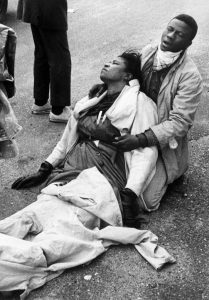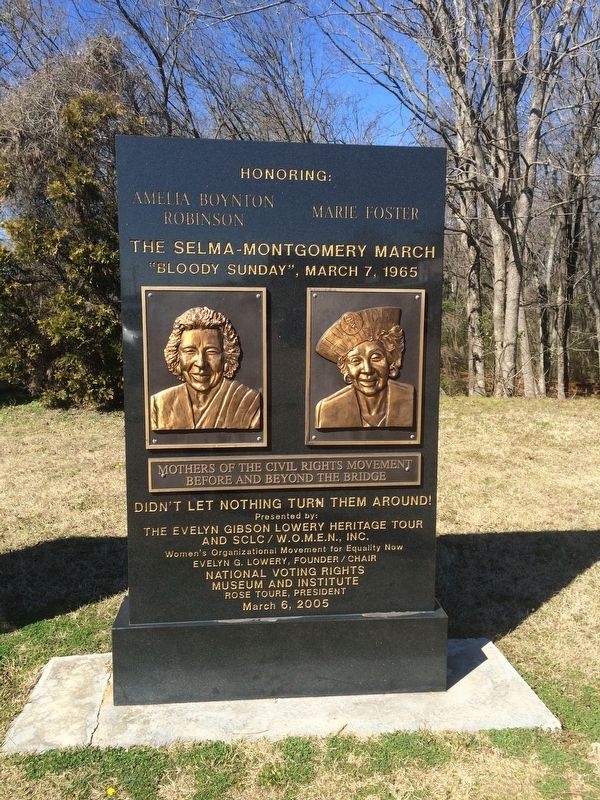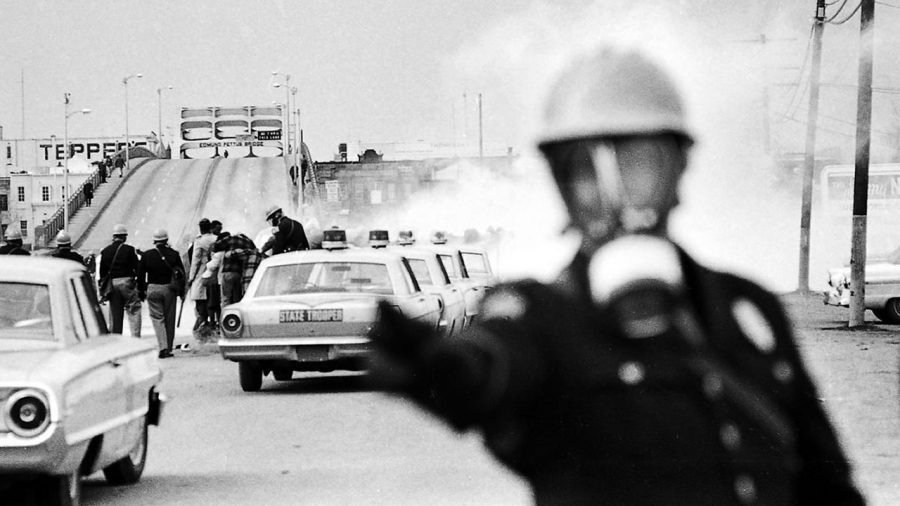What was “Bloody Sunday”?
Women Lead the Way; Mothers of the Civil Rights Movement
3/7/23 – A student reflection 58 years after Selma.
Amelia Boynton Robinson (1911-2015) was an African American civil rights pioneer, who 58 years ago today championed the voting rights for many other African Americans. On March 7th, 1965 at the age of 54 she was brutally beaten for helping lead a peaceful civil rights march also known as “Bloody Sunday”. The Edmund Pettus Bridge, where this march took place, protesters were met at the end of the bridge with aggression from officers. Tear gas was thrown and Billy clubs were being used, it is said that at least 17 people were beaten brutally and transported to the hospital, including Boynton.
Marie Foster, An African American activist for civil rights who helped launch voting rights movement in Selma, Alabama. Just like Amelia, Marie had been beaten brutally as well, bruised and swollen knees, but that didn’t stop the show. Foster took part in a later march to Montgomery led by the Rev. Martin Luther King Jr. This miracle led Congress to pass the Voting Rights Act of 1965, removing challenges set up by white segregationists to deny the ballot to many black citizens.

In 1964 Robinson became both the first African American woman and the first female Democratic candidate to run for a seat in Congress from Alabama. Although she didn’t win her seat, Boynton earned 10 percent of the vote.
About 600 people came together to protest VOTING RIGHTS and the brutal death of Jimmie Lee Jackson, who had been shot in the stomach by police days before during a peaceful protest. All in the event which they would’ve never known to become “Bloody Sunday”. After that day, this brought attention to the president, Lyndon B johnson. President Johnson then signed the voting rights act on Aug 6, 1965 with Boynton attending as a guest of honor.
Below, there is a short trailer on a movie called Selma, released in 2014, this historical drama film directed by Ava DuVernay and written by Paul Webb was motivated by thee Bloody Sunday Scene in 1965. This topic motivated me to gain interest in the movie and grab a vision of what that day truly must’ve been like. No film may be able to give these people the justice they deserved but this shall too educate you on what real life African Americans have to go through almost everyday whether racially profiled, motivated or anything.
Here are a few photos from that day March 7, 1965.
No justice, No Peace.


